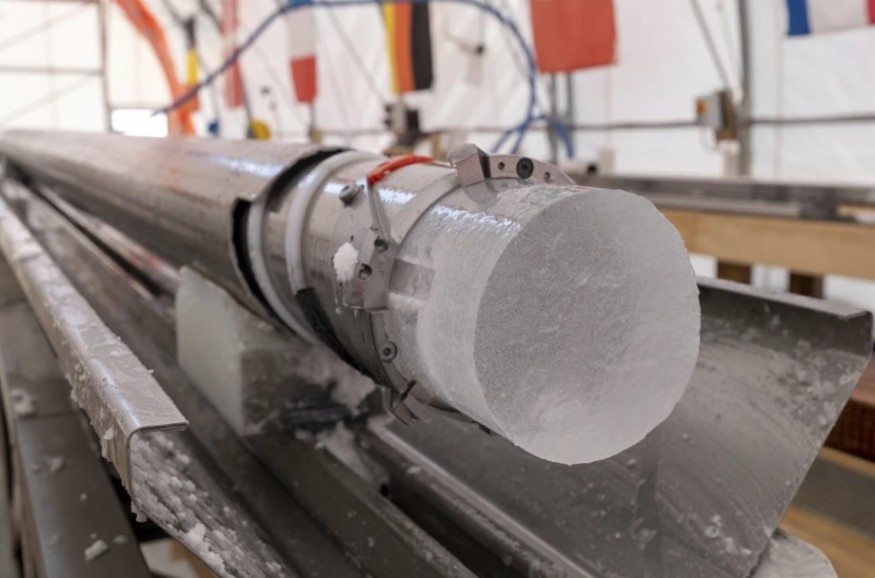
A groundbreaking discovery deep beneath Antarctica's icy surface may soon illuminate some of Earth's most intriguing mysteries. Scientists have drilled and retrieved an ancient ice core stretching nearly two miles (2.8 kilometers) to the bedrock at a site called Little Dome C.
The team, composed of researchers from 12 European institutions, worked for four years in harsh conditions, enduring temperatures that dropped to minus 35 degrees Celsius (minus 25.6 degrees Fahrenheit).
Ancient Ice Core Could Unlock Secrets of Earth's Ice Ages and Climate Shifts
The drilling effort, part of the Beyond EPICA (European Project for Ice Coring in Antarctica) initiative, aims to explore Earth's climate history through the study of air bubbles and particles trapped within the ice. CNN reported that the remarkable ice core is believed to be at least 1.2 million years old, making it one of the oldest samples ever collected.
Ice cores act as time capsules, preserving a detailed record of Earth's atmospheric composition, temperature changes, and environmental conditions. By analyzing the tiny air pockets within the core, scientists can trace how greenhouse gases such as carbon dioxide and methane have evolved over hundreds of thousands of years.
This ancient ice core could also help answer a long-standing question: Why did Earth's ice ages become longer and more intense roughly one million years ago? Some researchers believe the shift had profound effects on ancient human populations, potentially contributing to their decline during that period.
Researchers involved in the project described the discovery as a significant milestone for climate science, with the findings expected to shed light on changes in Ice Age cycles and offer vital insights into the connection between atmospheric carbon levels and global climate shifts.
Ice Core Discovery Reveals Stark Difference in Greenhouse Gas Levels Over Millennia
Past research from similar ice cores has shown that greenhouse gas concentrations remained relatively stable, even during the warmest periods of the last 800,000 years.
However, levels today are about 50% higher due to human activities since the Industrial Revolution. This stark difference underscores the urgency of addressing climate change.
According to AP, the European Union has been a key supporter of Beyond EPICA, funding the project alongside contributions from various countries.
The team's success in reaching bedrock has opened the door to further discoveries that could enrich our understanding of Earth's past and its implications for the future.
Climate scientist Richard Alley, who was not part of the project, called the achievement "amazingly fantastic." He emphasized that beyond the climate insights, the findings might reveal more about Earth's geological history, providing invaluable data for generations to come.
© 2025 NatureWorldNews.com All rights reserved. Do not reproduce without permission.





